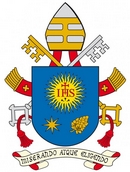The Old Testament was originally written in Hebrew, with some portions in Aramaic (a dialect which Jesus himself would have spoken). Around the 3rd century BC, work began on translating the text into Greek, which was a major language at the time and indeed the language used for the original New Testament text. The translation was known as the Septuagint or LXX (‘seventy’), from the tradition that around seventy scholars worked on the translation. The Septuagint included a number of books not in the original Hebrew text and these books gained some measure of acceptance in the early church. They were confirmed as being part of the list of authorised books, or canon of scripture, at the Council of Trent in 1546. For this reason, they are called deuterocanonical (literally: ‘second-canon’). At the Protestant reformation, the additional books were rejected as being non-inspired and termed Apocrypha or ‘hidden’.
The disputed books are the following:
- Tobit
- Judith
- Additions to Esther
- Wisdom of Solomon
- Ben Sira, also called Sirach or Ecclesiasticus
- Baruch, including the Letter of Jeremiah (Additions to Jeremiah in the Septuagint)
- Additions to Daniel: Song of the Three Children, Story of Susanna, Bel and the Dragon
- 1 and 2 Maccabees
Note: The term ‘Apocrypha’ is also used by the Catholic church, but in a different manner to denote writings whose claimed authorship is unfounded. Examples include the Gospel of Judas and the Acts of Thomas. For that reason they are also sometimes called pseudepigrapha or ‘false writings’.
